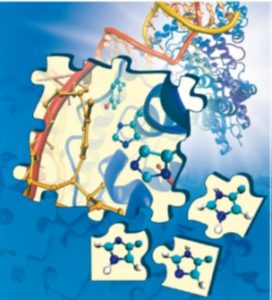Research Focus Areas
The Erlangen expertise in X-ray, gamma and neutrino astronomy, as well as in neutrino physics, is bundled together in the Erlangen Centre for Astroparticle Physics (ECAP). The researchers are working on questions such as the origin of cosmic rays, the properties of neutrinos and dark matter, the evolution of accretion disks, the creation of jets in the vicinity of black holes, or the unification of quantum theory and gravity. Theoretical studies related to the application of statistical physics to data analysis and modeling are an integral part of ECAP. The center offers an excellent environment with international collaborations in a wide field of topics as well as an extensive infrastructure, in particular with the research building “ECAP Laboratory” that has been opened in 2022. ECAP is world-renowned for developing detectors and in contributing to design, construction, operation, and data analysis of large experiments. In addition, ECAP is transferring detector technology to different areas like medical imaging.
You find research groups working on astrophysics here.

Research groups working on condensed matter physics and modern optics are interested in electronic aspects in novel materials (i.e. topological properties of solids, atomically thick materials, …) and creation and investigation of exotic photon states. This is done by methods relying on photon-electron-interaction (angle-resolved photoelectron spectroscopy, time-resolved X-ray spectroscopy, …)as well as nonlinear processes (multiphoton absorption, generation of a supercontinuum in photonic crystal fibers). There is also interest in emergent collective phenomena of quantum many-body systems which are relevant to condensed matter physics, quantum optics, and quantum technologies. Interactions between various degrees of freedom lead to novel states of matter with fascinating collective properties.
You find research groups working on such issues here.

The topics in biophysics range from an understanding of intramolecular processes to organisms and populations. Biophysics describes as well processes beyond their original biological context which can be used for medical or technical applications. From a physicist’s point of view, the most exciting aspect of living systems is their energy consumption and transformation into heat which cannot be described by traditional methods. The physical understanding of biological processes is evolving from an to date fragmentary conceptional framework of non-equilibrium dynamics.
You find research groups working on biophysical issues here
